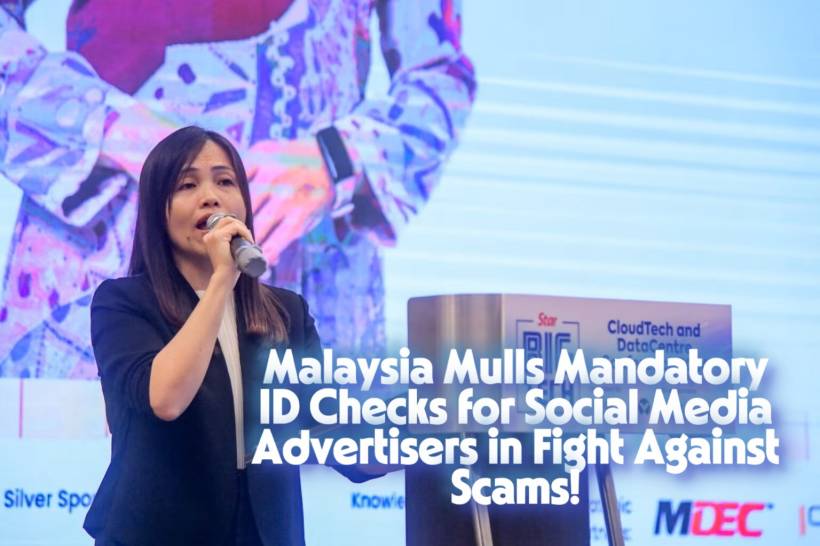In response to the alarming surge in online scams, the Malaysian government is exploring new regulations that could soon require all advertisers on social media platforms to verify their identities. The move, currently under review by the Malaysian Communications and Multimedia Commission (MCMC), is part of a broader effort to enhance online safety through new legislation.
Why This Matters: A Surge in Online Scams
Online scams are becoming a serious national concern. Just between January and April 2025, over 32,000 scam-related content pieces were removed from the internet by MCMC. That number ballooned to more than 46,000 by mid-July. Even more troubling is the financial toll—nearly RM800 million in losses were reported in just the first four months of the year due to various forms of digital fraud.
From fake investment opportunities to illegal gambling and unregistered products, cybercriminals are increasingly exploiting social platforms like Facebook, Instagram, and TikTok to deceive users. While platforms have taken some steps to remove such content, the scale of the problem has triggered calls for tighter regulation and accountability.
The Government's Plan: Identity Verification in the Spotlight
Deputy Communications Minister Teo Nie Ching confirmed during a parliamentary session that the government is seriously looking at identity verification as a potential safeguard. Malaysia is taking cues from neighboring countries like Singapore and Taiwan, which have already implemented similar verification requirements for online advertisers.
Under the proposal, individuals or entities seeking to run paid ads on social platforms may need to prove their identity before their content can be published. The hope is that this added layer of accountability will deter scam operators and make it easier to trace bad actors.
Collaboration with Social Media Platforms
Minister Teo emphasized that the government isn't working in isolation. The MCMC is actively engaging with tech giants to address this issue. Ongoing discussions are happening with platforms such as Meta (which owns Facebook and Instagram) and TikTok to ensure that scam-related ads and posts are swiftly identified and taken down.
That said, there remains a legal grey area. Despite the vast number of scam-related content hosted on these platforms, no social media company has yet been charged or penalized under Malaysian law. This is largely due to the fact that such content is often posted by third-party users—not by the platforms themselves.
The Legal Challenge: Who's Responsible?
Determining liability is tricky. According to Minister Teo, the question boils down to whether the platform merely hosted the scam content or actively played a role in spreading it. Current laws don't hold platforms accountable unless they are directly involved in promoting the content.
This gap in regulation is exactly what the proposed changes aim to address. If passed, mandatory identity verification could form the basis for stronger enforcement and, perhaps, pave the way for platforms to share more responsibility in curbing digital fraud.
What's Next?
As the MCMC drafts the new "online safety code," further consultations and legal reviews will likely shape how these policies take form. While still in the planning phase, the initiative signals the government's commitment to creating a safer digital environment for all Malaysians.
In the meantime, users are encouraged to stay vigilant, avoid interacting with suspicious content, and report any fraudulent activity they encounter online.
